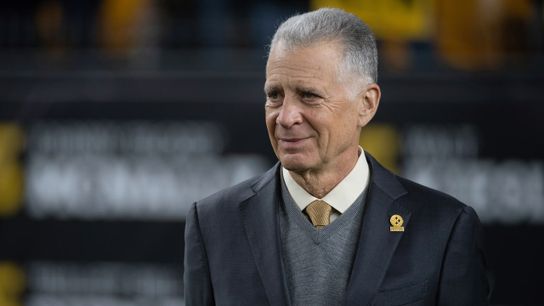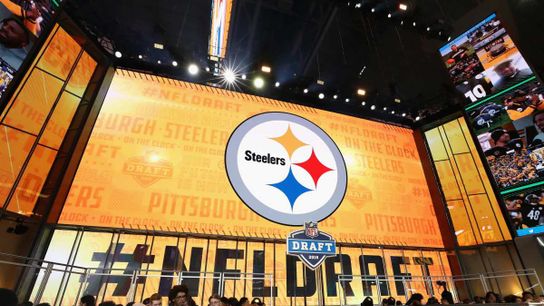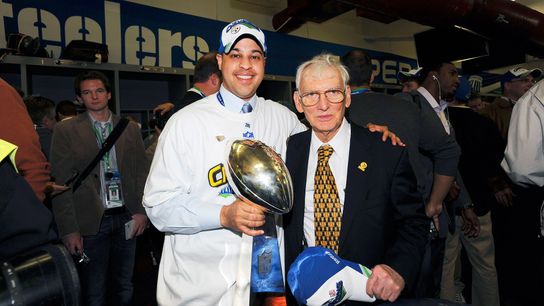In recent years, the Pittsburgh Steelers and the National Football League (NFL) have shown an unmistakable commitment to cultivating an environment of diversity and inclusion, underscoring the significance of these values within the broader community of sports. These efforts have encompassed various aspects of the sport, from administrative decisions to player recruitment, with a central objective of creating a truly inclusive space that reflects the multifaceted society in which we live.

NFL.com
Pittsburgh Steelers Owner Art Rooney II
The Steelers Journey to Change: Overcoming Challenges
Before delving into the specifics of these efforts, it's crucial to note that the overarching journey to inclusivity has not been a straightforward one. The NFL has faced its fair share of criticism for a perceived lack of diversity, particularly at the executive and coaching levels. However, the league has taken this criticism to heart, developing several initiatives designed to address these disparities.
In response to this pressing need for change, the NFL initiated the 'Rooney Rule' in 2003, named after Dan Rooney, the former owner of the Pittsburgh Steelers and chairman of the league's diversity committee. This rule requires teams to interview at least one diverse candidate for head coaching and senior football operation jobs. Although met with skepticism initially, over time, the Rooney Rule has acted as a catalyst in ensuring the representation of diverse candidates in significant roles, showcasing the NFL's commitment to leveling the playing field.
Building on the strides made by the Rooney Rule, the NFL launched the 'Diversity, Equity, and Inclusion Plan' in 2020. This comprehensive strategy seeks to increase representation across race, gender, and sexual orientation in all levels of football. It includes the implementation of policies such as enhanced recruitment strategies, employee support programs, and community outreach initiatives.
Broadening the Spectrum: Inclusion of the LGBTQ+ Community
Beyond these policies, the NFL has also acknowledged the importance of LGBTQ+ inclusion, with campaigns such as the 'Football is Family' initiative that showcases the league's support for players of all identities. In a bid to make the sport even more inclusive, the league has celebrated Pride Month and even drafted its first openly gay player, sending a powerful message of acceptance.

Getty Images
Koobit, a platform that understands the significance of these cultural events for sports fans, offers a wide range of tickets that cater to different preferences. Users can easily compare ticket prices on the Koobit website, making sure they get the best deals to attend these special games and celebrations. This focus on diversity and inclusivity is manifested not only in the league's internal policies but also in the NFL games themselves. These efforts elevate each game beyond a mere athletic contest, transforming it into a celebration of equality, where diverse voices and stories deserve to be heard and seen.
Join the Experience: The Role of Fans in Promoting Inclusivity
In the realm of sports, fans hold a special and significant place. They bring a match to life with their infectious energy, creating an atmosphere that's both exhilarating and inclusive. The shouts, the cheers, the sighs, and the collective holding of breath - these elements make a game more than just a physical contest; they transform it into a cultural experience that transcends the boundaries of age, race, gender, and geography.
Promoting Inclusivity: The Power of the Fans
Fans have the power to shape the culture and identity of their beloved teams and the sports they follow. One crucial aspect of this is promoting inclusivity. By creating a welcoming environment for all, regardless of background, fans can play an instrumental role in combating prejudice and discrimination, fostering an inclusive ethos that extends beyond the confines of the stadium.
Sports events have the unique ability to unite diverse crowds. Fans cheering for the same team form an instant connection, overcoming any societal or personal barriers. This shared passion is a powerful tool in promoting inclusivity and understanding, giving fans the opportunity to interact with and learn from individuals they might not encounter in their daily lives.
The role of fans in promoting inclusivity is not limited to their behavior during matches. Their actions outside the stadium - on social media, in fan clubs, or at community events - can also help create an environment of acceptance and respect. By standing against discriminatory behavior and showing support for diverse players and fellow fans, they help weave inclusivity into the fabric of their teams and the sport. The NFL provides a clear example of how fans can promote inclusivity. From cheering on pioneering players like Michael Sam, the league's first openly gay player, to supporting initiatives that promote diversity, fans have shown how they can foster an inclusive culture.

Steelers.com
The NFL's commitment to diversity and inclusion marks a significant shift in the sport's culture, mirroring the changing dynamics of society. As fans, being part of this change can be incredibly rewarding. And with the right platform, that change is just a ticket away. They demonstrate that the league is open to transformation, and is working diligently to create a milieu that appreciates and cherishes diversity.


